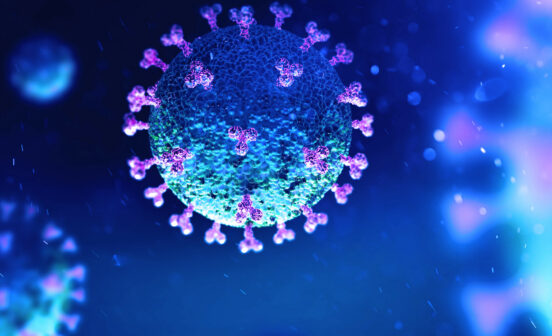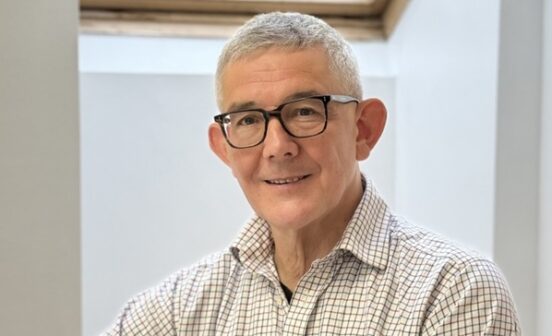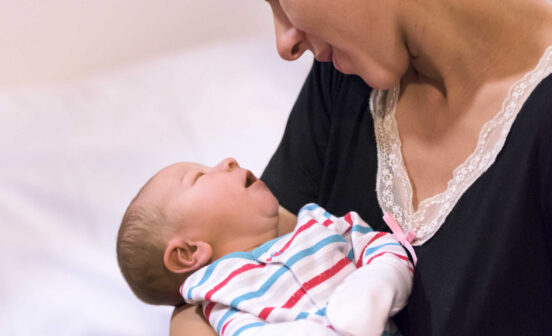This theme integrates data from our extensive discovery science on the role of genetic and environmental factors in disease with knowledge of the social determinants to understand inequalities in health. This holistic approach will inform strategies for prevention, early diagnosis and precision medicine to improve health.
Why this Research is Needed
There is an unequal burden of disease in northwest London, with health outcomes strongly linked to social and environmental factors. Despite being among the wealthiest boroughs in London, Westminster and Kensington and Chelsea both have a high proportion of families living in poverty, and Hammersmith and Fulham are in the worst quartile in England for preventable deaths from respiratory conditions. Local health and social care services have identified improved prevention and early diagnosis as a key priority, along with adolescent and child health, particularly childhood obesity, air pollution and poor mental health.
Theme Aims
The theme aims to inform strategies for prevention, early diagnosis and precision medicine to improve health through integrating research data on the social, environmental and biological (including genomic and multi-omic studies) factors. Across the work in this theme, two key long-term challenges will be addressed:
- the lack of diversity and inclusion in research participation and related inequality in health benefits from translational research
- the limited capacity in health data science and analytics, and in researchers, clinical staff and patients with the ability and confidence to fully integrate social, genetic and environmental factors into precision medicine.
Upcoming /Ongoing Projects within the Theme
Inclusive participation in research
Previous work supported by the BRC and carried out by the Patient Experience Research Centre has identified the under-representation of key communities as participants in research studies. This contributes to health inequalities as translational research may be less relevant and effective for some groups. We hypothesize that the involvement of patients, public and clinicians at each stage of research will accelerate translation of novel interventions into clinical practice and broaden the impact of translational research. Our theme is working closely with local communities to make research more accessible, relevant, and inclusive. We have already recruited Community Partners and are working with them to develop this programme. We are also carrying out a pilot study to find out how participants in existing cohort studies would like to be approached (recalled) for further studies, and analysing data from the large REACT study on the differential impact of incentives on research participation.
Pharmacogenomics
A core theme which emerged from our public consultations was the opportunity to better understand responses to medicines through genomic methods, whether these are beneficial or potentially adverse events. This principle is already being pursued within the NHS for selected drugs, and the number will be expanding through the NHS Genomic Medicine Service. In year one, with our colleagues within pharmacy, we are examining ways in which additional information could be provided to patients, by studying wider ranges of drugs; further genes that may influence drug responses; and conducting extensive examination of variation within those genes. We use new insights from the types of genetic variation exposed by modern sequencing methods – exposing differences in the gene sequences, and also in how the genes are ‘read’ by cells that are healthy and cells that are cells under stress. Early 2023 data is to be presented to our Community and Pharmacy Partners to prioritise future work.
Monocytes in collaboration with NIHR Imperial BRC Tissue Bank
Human cells are impacted by complex and varying simultaneous stresses throughout life, such as aging, physiological extremes, environmental pollution, infections, disease and drugs. In work funded by the NIHR Imperial BRC, we have developed a same-day system that allows examination of blood cell responses before and after life-relevant stresses, yet in a more natural environment than is usually studied in the laboratory. We have already tested three different types of stress and identified one that is best suited to combine with environmental exposures, drug evaluations and different DNA backgrounds. The work is being scaled up for 2023. An example of how this can be used to show how responses differ in people with specific DNA changes is already publically available.
COVID Recovery
This work programme builds on existing studies such as REACT Long COVID (funded by NIHR and UK Research and Innovation) which is following up over 250,000 people to understand why some people who are infected continue to have symptoms for several weeks or months while others do not. In addition, REACT-GE (a partnership between Imperial College, Genomics England and Edinburgh University) is looking for biological ‘signatures’, such as molecules in the blood or variations in people’s genes, that could help explain why some infected individuals experience serious and/or prolonged illness while others do not. We have recruited 10,500 people to collect samples for whole genome sequencing as well as a variety of other tests looking at the brain and immune system. In linked projects we are exploring the impact of COVID-19 on cognition, in partnership with the brain sciences theme, and the prevalence of residual lung disease following infection, in partnership with the UK Interstitial Lung Disease Consortium (UKILD). Our analyses are using statistical analysis and machine learning to find markers that give people a higher risk of serious disease and of long COVID, which could highlight new treatment and diagnostic avenues.
Environmental determinants
Researchers in the Environmental Research Group will provide key inputs into theme work programmes, for example the impact of air pollution on COVID recovery, and the complex interaction between social and environmental exposures and health. An excellent example of this work is the West London Healthy Home and Environment Study (WellHome). Children growing up in the UK today represent an ‘indoor generation’, with most of their activities taking place within chemically diverse and often complex air quality environments. However, the indoor environment presents significant challenges to public health research; our homes are private spaces where we choose how to behave and policies encroaching on that choice can be unpopular or inappropriate. Furthermore, socioeconomic circumstances can play a significant role in choice regarding housing quality, neighbourhood, insulation or home technology. Co-created with the White City community, the WellHome study aims to identify the dominant air pollution exposures across the indoor and outdoor air pollution continuum within vulnerable and diverse urban communities including asthmatic children. It will explore contrasts in exposure to chemical and biological contaminants and health within households and develop appropriate recommended behavioural changes and policies to reduce health burdens.
Patient and Public Involvement, Engagement and Participation
We are grateful to the many members of the public who have provided, and continue to provide, input into this new theme. The planning phase for this theme during the application stage, included an online discussion with 22 members of the public. Nine community partners with extensive local links are advising our theme co-leads and researchers across all phases of our work. There is active involvement in many of the programmes linked to our theme, including in environment (WellHome study), adolescent and child health (SCAMP study), COVID-recovery (REACT-LC), and genomics helping shape a 2023 grant application. Two partners sit on our theme management committee.
Pilot Projects
- Use of DNA methylation to predict the risk of depression and anxiety in young people- Dr Shen Chen
- Determinants of change in non-communicable diseases in the UK and comparator countries- Majid Ezzati
- Understanding the role of social, genetic and environmental factors in the severity of sickle cell: a pilot study developed with patients- Dr Frédéric B. Piel and Dr Rutendo Muzambi
- Investigating social, biological and environmental determinants of infertility: a pilot study – Dr Sabrina Rodrigues
- The role of social determinants in the potential for inhaled microplastic pollution to affect macrophage energy metabolism- Dr Stephanie Wright
Equality, Diversity and Inclusion
One of the research priorities of our theme is to understand and address the lack of diversity in research participation, one of the objectives of the BRC Equality, Diversity and Inclusion strategy. We will work closely with our community partners and research cohort participants to try and make research more accessible to groups that are currently under-served by research. We will also work to address the real concerns that people have about genetic research, alongside their recognition of potential benefits, and shape the theme’s direction aiming to build trust and understanding in order to make research more acceptable and relevant.
Publications
Xiao S, Kai Z, Murphy D, Li D, Patel D, Bielowka A, Bernabeu-Herrero ME, Abdulmogith A, Mumford AD, Westbury S, Aldred MA, Vargesson N, Caulfield MJ, Genomics England Research Consortium, Shovlin CL. Functional filter for whole genome sequence data identifies stress impact, non-coding alternate polyadenylation site variants >5kb from coding DNA. medRxiv 2023.05.14.23289043; doi https://doi.org/10.1101/2023.05.10.23289736v1 (Pre-print, not peer reviewed)
Atchison CJ, Davies B, Cooper E, Lound A, Whitaker M, Hampshire A, Azor A, Donnelly CA, Chadeau-Hyam M, Cooke GS, Ward H, Elliott P. Long-term physical and mental health impact of COVID-19 on adults in England: follow up of a large random community sample. medRxiv 2023.04.24.23289043; doi: https://doi.org/10.1101/2023.04.24.23289043 (Pre-print, not peer reviewed)
Atchison CJ, Whitaker M, Donnelly CA, Chadeau-Hyam M, Riley S, Darzi A, Ashby D, Barclay WS, Cooke GS, Elliott P, Ward H. Characteristics and predictors of persistent symptoms post COVID-19 in children and young people: a large community cross-sectional study in England. Archives of Disease in Childhood 2023; published online 2 March 2023. doi: 10.1136/archdischild-2022-325152
Eales O, Page AJ, Tang SN, Walters CE, Wang H, Haw D, Trotter AJ, Le Viet T, Foster-Nyarko E, Prosolek S, Atchison C, Ashby D, Cooke G, Barclay W, Donnelly CA, O’Grady J, Volz E, Darzi A, Ward H, Elliott P, Riley S. The use of representative community samples to assess SARS-CoV-2 lineage competition: Alpha outcompetes Beta and wildtype in England from January to March 2021. Microbial Genomics 2023;9(2) https://doi.org/10.1099/mgen.0.000887
Key Individuals
-
Professor Claire Shovlin
Theme Lead, SGE & Professor of Practice (Clinical and Molecular Medicine) -
Professor Helen Ward
Theme Lead, SGE, Professor of Public Health and Director, PERC -
Dr Aubrey Cunnington
Professor of Paediatric Infectious Disease -
Dr Bethan Davies
Clinical Senior Lecturer in Epidemiology -
Dr Mireille Toledano
Senior Lecturer in Epidemiology -
Professor Paul Elliott
Theme Lead, Informatics & Biobanking










